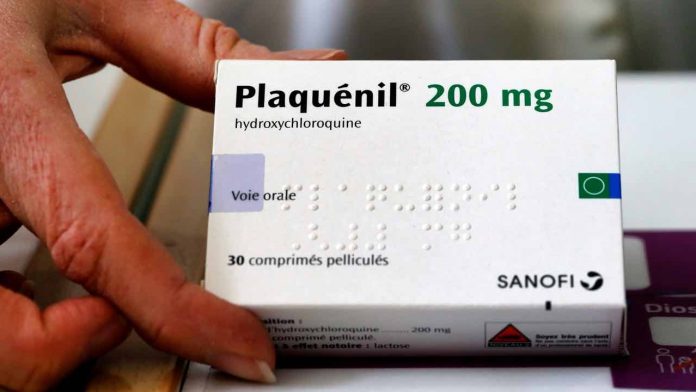Few Americans have been personally affected healthwise by the coronavirus so far, but politics is a factor when it comes to potential treatment.
A new Rasmussen Reports national telephone and online survey finds that six percent (6%) of American Adults now say they or a member of their immediate family has been diagnosed with COVID-19.
Among these Americans, 38% say they would take the drug Hydroxychloroquine if they were diagnosed with the coronavirus. Forty-one percent (41%) would not, but 21% more are not sure.
Among all Americans, 31% would take the anti-malarial drug that many experts say counters the coronavirus but came under political attack after President Trump endorsed it. Thirty-five percent (35%) would not take Hydroxychloroquine. Just as many (34%) are undecided.
Politics rules these days even when it comes to personal health. While 53% of Republicans say they would take Hydroxychloroquine if diagnosed with COVID-19, just 18% of Democrats and 28% of those not affiliated with either major party agree.
The survey of 1,000 American Adults was conducted April 8-9, 2020 by Rasmussen Reports. The margin of sampling error is +/- 3 percentage points with a 95% level of confidence. Field work for all Rasmussen Reports surveys is conducted by Pulse Opinion Research, LLC. See methodology.
Thirteen percent (13%) of Americans said last October that they had had the flu the previous year, and 55% intended to get the flu shot before the current flu season.
Americans under 40 are more likely than their elders to report that they or someone in their immediate family has been diagnosed with COVID-19. But these younger adults are the least likely to take Hydroxychloriquine if diagnosed with the disease themselves.
Men are more willing to take Hydroxychloriquine than women are, perhaps in part because men are twice as likely to say they or someone in their immediate family has been diagnosed with coronavirus.
Blacks are less willing to take the drug than whites and other minority Americans. Other minorities report more cases of coronavirus in their family than blacks and whites do.
Americans are nearly all keeping their distance from others during the ongoing coronavirus crisis, but many also acknowledge that social distancing is hurting some of their close personal relationships.
Democrats remain highly critical of how the government is handling the coronavirus crisis and think a new House oversight committee will make things better. Republicans see more politics ahead.
Additional information from this survey and a full demographic breakdown are available to Platinum Members only.















